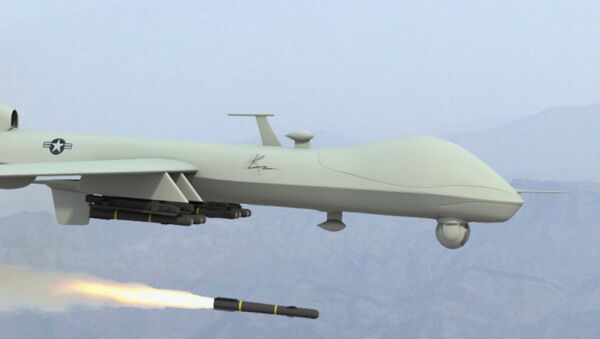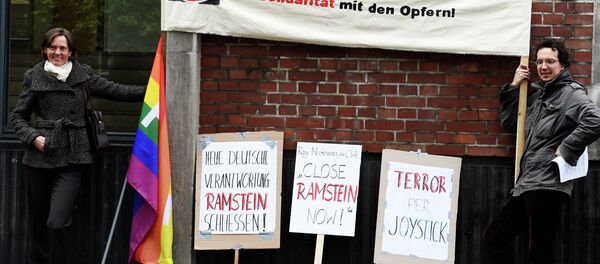The case is being forwarded by the George Soros funded charity Open Society Justice Initiative. According to the documents, cited by the Guardian, AB had left his home with his camels one early morning in February and never returned.
His son and a few neighbors went searching for him the next day, and were informed by passersby that an al-Shabaab car had recently been targeted by an airstrike. They found AB’s dismembered body in the wreckage later that day, along with the bodies of some of his camels.
CB’s lawyers have lodged a criminal complaint holding the "US and German military and secret services" accountable for the death of AB as a result of the intentional killing of Sakr. The court documents additionally stress Germany’s role in the killing, claiming the country was equally responsible for the “unlawful covert killing” by allowing its bases to be used for US secretive drone operations.
Secret presentations released by former NSA-contractor-turned-whistleblower Edward Snowden revealed that Germany’s Ramstein air base has played a significant role in the US drone campaign. CB’s lawyers have cited these presentations, saying that the air base connected drones flying over the Middle East and Africa to the US drone headquarters in Nevada.
In addition to relaying drone data streams to Nevada, CB’s lawyers claim that Ramstein personnel were also responsible for analyzing intelligence gathered by the drones before passing it to pilots.
CB’s lawyers further claim that the mission that killed Sakr was planned at US Africa Command, which is headquartered in Stuttgart. A parallel civil complaint filed by CB alleges that Germany has violated its own constitution, as well as NATO rules, by allowing US military facilities to use its territories.
"One of the aims of the criminal complaint is to trigger the obligation for the prosecutor to investigate the case and to find out who are the decision takers and the ones to be held responsible for what happened on 24 February 2012 – something the victims themselves can’t do." CB’s solicitor Natalie von Wistinghausen told the Guardian. "They have no way to find out who controlled the drone and pushed the button. The pilot can see its target but the target (here an innocent civilian) is faced with an anonymous and invisible enemy."
CB’s is the latest in a string of legal challenges being brought against Germany for its alleged role in the US drone strike campaign. A case launched by the legal charity Reprieve on behalf of a Yemeni man who claimed Germany was jointly responsible for the death of his brother by a US air strike was rejected by the court on June.
"At issue in this case is whether states like Germany can support a secret killing program that operates outside the law while evading accountability," Open Society Justice Initiative lawyer Amrit Singh told the Guardian, referring to CB’s case.
"It is vitally important that the courts intervene to guard against the setting of a dangerous precedent and impost lawful restraints on states that support a virtually limitless authority to kill."





